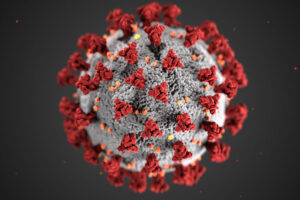Moscow Reports Coefficient of Spread of Pandemic has Fallen Below One Even in 10 Worst Regions

(Window On Eurasia – Paul Goble – Staunton, March 27, 2021)
The Russian consumer protection agency says that the coefficient of the spread of the coronavirus has fallen below one even in the 10 regions which have the highest rates of infection. That points to continuing declines because it means that each person infected is now expected to infect less than one other (tass.ru/obschestvo/10991063).
Earlier, the rates in Russian hotspots were often above 1.1, meaning that for every 100 people with the infection, 110 more would be infected and the pandemic would continue to spread. For many months, Moscow did not talk about this number, but now that it is heading in the right direction, the central authorities are not surprisingly calling attention to it.
The other focus of Russian coverage of the pandemic this weekend was Vladimir Putin’s lack of any serious side effects from getting the first dose of the vaccine. He said he felt nothing initially and only after a few hours some soreness in the arm where the vaccine was injected (business-gazeta.ru/news/503826).
The central government reported that it had registered 8885 new cases of infection and 387 new deaths from the coronavirus, continuing the downward trend for the country as a whole in recent weeks (t.me/COVID2019_official/2672 and regnum.ru/news/3226863.html). But in remaining hotspots, officials are refusing to lift restrictions they imposed earlier (regnum.ru/news/society/3226201.html).
St. Petersburg, which has been a major source of concern, finally began to report some better numbers, with infections, hospitalizations, and deaths trending downward and enough vaccine to continue inoculating all who seek the medication (regnum.ru/news/3227099.html).
The Russian government restored flights from Russian airports to Uzbekistan and Tajikistan, although the number of such flights remains very low and far lower than was the case before the pandemic (russian.eurasianet.org/возобновляются-рейсы-в-россию-из-узбекистана-и-таджикистана).
Meanwhile, in other pandemic-related developments in Russia today,
- Russians reacted to Moldovan President Maia Sandu’s request for Moscow to send it vaccine with suggestions that the Russian authorities should do so only if she changes her domestic and foreign policies (regnum.ru/news/3226786.html).
- To convince Russians that they should be vaccinated, ever more media outlets are featuring stories about the horrific experiences of those who, lacking vaccines, have suffered in hospitals, experiences some doctors characterize as a form of “hell” (samara.kp.ru/daily/27257.5/4388700/).
- That the Kremlin has used the pandemic as a pretext for clamping down on dissent is a well-established fact, but less attention has been devoted to the fact that regional and republic officials have been doing the same thing. Now such stories are beginning to appear (idelreal.org/a/31163327.html).
[article also appeared at windowoneurasia2.blogspot.com/2021/03/moscow-reports-coefficient-of-spread-of.html]
